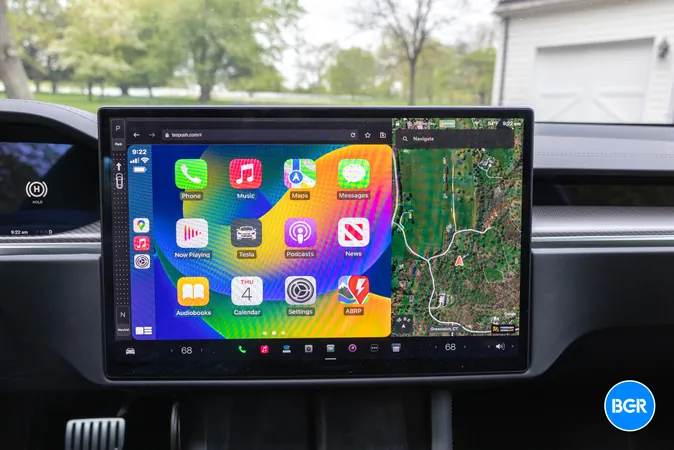
Controversy Erupts as Kaspersky Users Unwittingly Transition to New Antivirus Software, UltraAV
2024-09-23
Author: Wai
Introduction
In a surprising turn of events, Kaspersky antivirus customers in the United States recently discovered that their existing cybersecurity software had been abruptly replaced by a new product called UltraAV. This unexpected update, which came without prior notification for many users, has ignited a wave of frustration and confusion across social media platforms.
User Reactions
One disgruntled user took to Reddit to share their experience: “I woke up to find Kaspersky completely gone from my system, with UltraAV and Ultra VPN freshly installed - and I didn’t authorize a thing!” Similar accounts flooded in from other users, sparking conversations about the implications of such a forced update.
Reseller and Expert Criticism
Adding to the growing discontent, a former Kaspersky reseller voiced their irritation to TechCrunch, stating they felt “annoyed” by the automatic removal of Kaspersky software without consent. This move has also drawn criticism from cybersecurity experts, with a former senior U.S. government official warning about the “huge risk” associated with granting expansive access to Kaspersky products.
Communication and Customer Experience
Interestingly, some customers reported receiving prior email communication from Kaspersky regarding this transition to UltraAV, though many felt blindsided by the rapid nature of the change.
Government Involvement and Timing
This backlash comes on the heels of the U.S. government’s unprecedented ban on the sale of Kaspersky software, announced in June, and effective from July 20. Customers were allowed limited security updates up to September 29, but were left in the dark about the transition to their new antivirus solution.
Strategic Transition to Pango
The shift to UltraAV is part of a strategic move wherein Kaspersky struck a deal to transition its users to Pango, an American cybersecurity firm that owns UltraAV. The antivirus software’s website states that Kaspersky users on Windows would receive the new software at no additional cost, with no action required on their part. However, the lack of clarity regarding when this information became available has raised further eyebrows, with the earliest archived reference noting it appeared around September 6.
Kaspersky's Confirmation and Assurance
Kaspersky confirmed the transition, emphasizing their collaboration with UltraAV to ensure minimal disruption for users. In a statement on an official company forum, an employee identified only as Vadim M. stated that customers received a software update facilitating the transition as of September 19. “This update ensured that users would not experience a gap in protection,” they assured.
Continued Transparency Concerns
However, the transparency over the transition process continues to be questioned. Sydney Harwood, a spokesperson for Pango, maintained that all Kaspersky customers had been informed about the transition in early September. Yet, many users, like Avi Fleischer, a Kaspersky customer and former reseller, expressed their dissatisfaction. “I’m annoyed at Kaspersky,” he remarked. “They should’ve given me the option to accept UltraAV or not. Pushing software onto someone’s computer without explicit permission is unacceptable.” Fleischer even stated he uninstalled UltraAV and UltraVPN immediately after the forced update.
Implications for the Cybersecurity Sector
As Kaspersky navigates this controversial transition and the subsequent public backlash, the broader implications for data privacy and consumer consent within the cybersecurity sector are becoming increasingly evident. How will this situation unfold, and what lessons will be learned? Stay tuned as this story develops!




 Brasil (PT)
Brasil (PT)
 Canada (EN)
Canada (EN)
 Chile (ES)
Chile (ES)
 España (ES)
España (ES)
 France (FR)
France (FR)
 Hong Kong (EN)
Hong Kong (EN)
 Italia (IT)
Italia (IT)
 日本 (JA)
日本 (JA)
 Magyarország (HU)
Magyarország (HU)
 Norge (NO)
Norge (NO)
 Polska (PL)
Polska (PL)
 Schweiz (DE)
Schweiz (DE)
 Singapore (EN)
Singapore (EN)
 Sverige (SV)
Sverige (SV)
 Suomi (FI)
Suomi (FI)
 Türkiye (TR)
Türkiye (TR)